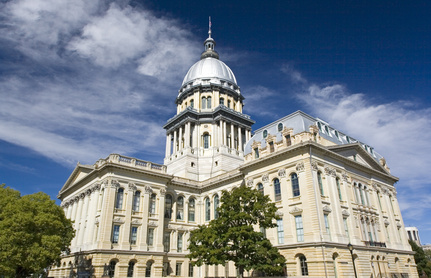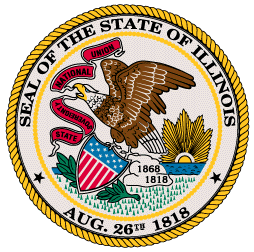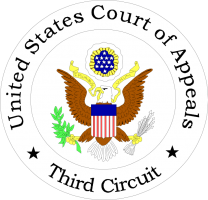A recent Illinois bill provides a welcome fix to the Illinois Collection Agency Act (ICAA). The legislation, SB 1369, corrects amendments made to the ICAA this past August. Those amendments potentially expanded sections of the ICAA to commercial debt and would require disclosures contrary to (and possibly in violation of) the federal Fair Debt Collection Practices Act. The corrective legislation: Amends section 9.1 (Communication with persons other than debtor) to provide that when seeking location information from third parties, collection agencies and debt buyers must provide the name of their employer “only if expressly requested” Amends section 9.3 (Debt validation) to provide that a…
Posts published in “Debt Collection”
Bill targets collectors seeking repayment of government debt and debt buyers On Nov. 5, U.S. Senator Cory Booker introduced S. 2255, the “Stop Debt Collection Abuse Act of 2015.” Though primarily targeted toward debt collectors collecting on obligations owed to the federal government, the bill also brings debt buyers into the FDCPA definition of “debt collector.” The bill has been assigned to the Senate Banking Committee. Regarding private debt collectors under contract with the federal government: The definition of “debt” (15 USC 1692a(5)) is expanded to include “any obligation or alleged obligation of a consumer (i) to pay a loan,…
A New Jersey Senate bill introduced in 2014 relating to debt collectors’ responsibilities upon receipt of notice of identity theft or misidentification crossed over to the Assembly this week. S1344 received unanimous support in the Senate Commerce Committee, with amendments, and passed from the Senate on third reading by a vote of 32-0. The bill adopts the FDCPA’s definition of “debt,” but strays in its definition of “debt collector” which includes, in part, “any person who by any direct or indirect action, conduct, or practice, collects or attempts to collect a debt that is owed or due or asserted to…
The Consumer Financial Protection Bureau’s latest edition of Supervisory Highlights was released last week. I expected some stinging comments directed at debt collectors and debt buyers, given the recent consent decrees. What I found was the opposite. The 45-page report devoted only three paragraphs to supervised ARM entities. And, what was reported only indicates the potential for regulatory violation and did not note any instance where a consumer was actually harmed. Communications with Consumers Here the Bureau looked at supervised entities’ compliance with section 1692c of the Fair Debt Collection Practices Act. The CFPB’s beef here was that ARM companies had…
Proposed legislation to enact Massachusetts’ Family Financial Protection Act (S. 146 – H. 804) was considered during a hearing before the Joint Financial Services Committee on Oct. 27. The legislation, in part, defines active and passive debt buyers as “debt collectors.” It also places limits on garnishable wages, establishes a three-year statute of limitations, prohibits revival upon payment, and places limits on a successful plaintiff’s award of interest and attorney’s fees. The legislation contains the following: “Debt Buyer” means a person or entity that purchases delinquent or charged-off consumer loans or consumer credit accounts, or other delinquent consumer debt for collection purposes, whether it collects the debt itself or hires a…
Three consent decrees issued over the past few months present clear challenges for the debt buying industry, creditors and companies that provide services to them. The first, between the Consumer Financial Protection Bureau and JP Morgan Chase Bank, contained an agreement altering the bank’s debt collection activities. The bank also agreed that any debt sold by it would contain a restriction prohibiting resale by the subsequent purchaser. More specifically, and among other things, the Chase Bank Consent Order (copy available here) requires Chase to do the following: Stop selling loans and other debts that: (1) were discharged in Chapter 7 bankruptcy; …
The U.S. Court of Appeals for the Eleventh Circuit recently confirmed that an entity is not a “debt collector” under the federal Fair Debt Collection Practices Act, where it does not regularly collect on debts owed to a third party, and debt collection is not the principal purpose of the entity’s business, even when the debt was in default at the time the entity acquired it. A copy of the opinion is available at: Link to Opinion. A lender sued a borrower to collect credit card debt. The parties entered into a settlement agreement, but the borrower failed to pay…
As you may recall, an Illinois appellate court held in 2012 unreported opinion that mortgage servicers may be subject to Illinois Collection Agency Act, 225 ILCS 425/1, et seq. (ICAA), including the licensing and other requirements of the ICAA. The Court held that, “[d]epending on what a mortgage servicer does other than elicit and receive routine or timely mortgage payments and attempt to collect delinquent payments, it may or may not be a debt collector” under the ICAA. A copy of the opinion is available at: Link to Opinion. The State of Illinois recently amended ICAA to among other things: Clarify…
The U.S. Court of Appeals for the Eleventh Circuit recently held, in a case of first impression, that a creditor violates the bankruptcy discharge injunction by filing a proof of claim on a debt that was previously discharged in another bankruptcy proceeding. A copy of the opinion is available at: Link to Opinion. Husband and wife debtors filed a Chapter 13 bankruptcy petition in 2006. The case was converted to a Chapter 7 liquidation, and the subject debt, a deficiency of approximately $11,000 on a sales contract for a mobile home, was discharged in 2009. In 2012, the debtors filed…
The U.S. Court of Appeals for the Third Circuit recently held, in a matter of first impression among all of the Courts of Appeals, that a debt collector bears the burden of proving that a communication with a third party falls within the exception for location information contained in subsection 1692b of the federal Fair Debt Collection Practices Act (FDCPA). A copy of the opinion is available at: Link to Opinion. In 2005, a borrower obtained a loan in the amount of $43,300 secured by a mortgage. The mortgage went into default in 2011. The borrower called the mortgage servicer…
The U.S. Court of Appeals for the Third Circuit recently held that a false statement in a communication from a debt collector must be “material” to be actionable under the FDCPA. In so ruling, the Court found that materiality was a part of the “least sophisticated debtor” analysis. A copy of the opinion is available at: Link to Opinion. In that case, a debt collector had purchased credit-card debt from the original lender. That debt collector then hired a law firm to help collect the debt. The law firm then filed suit to collect the debt. In that underlying case, the law…
The U.S. Court of Appeals for the Eleventh Circuit recently affirmed the dismissal of a borrower’s allegations under the federal Fair Debt Collection Practices Act and the Florida Consumer Collection Practices Act as to one letter, the purpose of which was to request additional information, but reversed as to two other letters, holding that they were sent in connection with the collection of a debt. A copy of the opinion is available at: Link to Opinion. The plaintiff’s mortgage loan went into default and the law firm representing the lender sent the borrower three letters. Two weeks later, the borrower…









